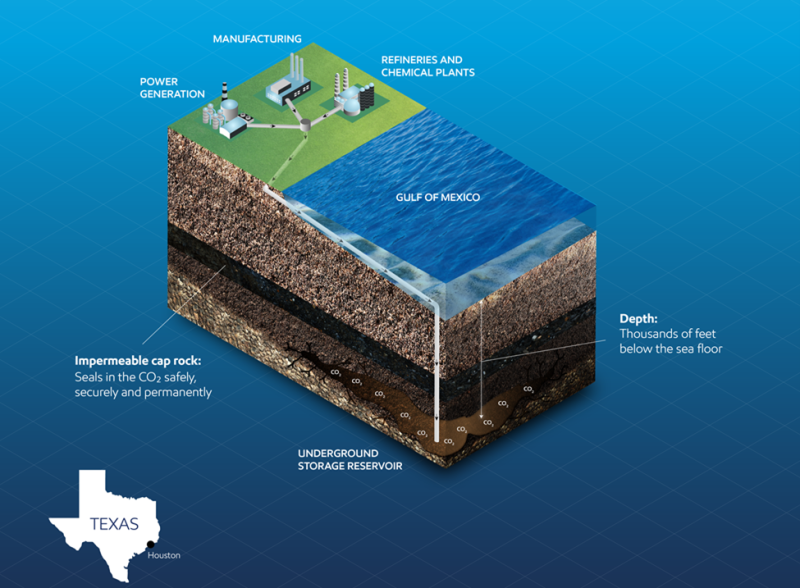ExxonMobil announced this week that it has secured more than 271,000 acres in shallow waters offshore Texas to develop what will become the largest carbon capture and storage (CCS) site in the US.
The agreement comes more than 3 years after ExxonMobil proposed creating the world’s largest CCS project offshore the Houston area, with a goal to sequester 50 million tons per annum (mtpa) of CO2 by 2030. However, ExxonMobil has not shared injection capacity targets or provided expected startup dates for the newly acquired leases.
The leases, located within state waters off the coast of Jefferson, Chambers, and Galveston Counties, allow ExxonMobil to permanently store captured CO2 at depths of 1 to 2 miles below the surface.
The agreement with the Texas General Land Office, which manages mineral rights on state lands and waters, stipulates that royalties from the leases will support the state’s public school fund.
“This will enhance education for Texas children while also reducing emissions and promoting community development in nearby areas,” ExxonMobil said in a statement.
ExxonMobil already operates the largest CO2 pipeline network in the US, following its $5.9 billion all-stock acquisition of Denbury Inc. last year. The deal added 1,300 miles of pipeline, primarily along the US Gulf Coast’s petrochemical corridor.
In addition, the company has a current CO2 capture capacity of 9 mtpa and is targeting a reduction of between 40 and 50% in upstream emissions by 2030 compared with 2016 levels.
As of July, ExxonMobil had signed its fourth emissions-capture agreement, bringing its total CCS customer commitments to 5.5 mtpa.


